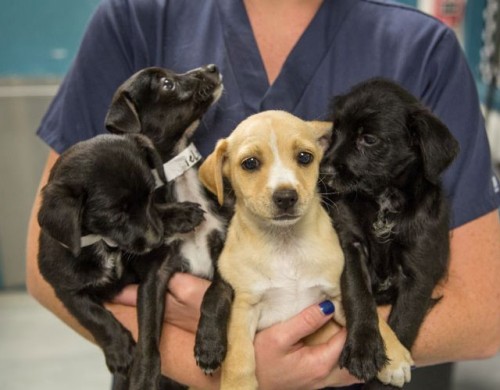Parvo Outbreak Plagues Los Angeles County
In a dog health crisis that hits near to home for this dog writer, I encourage everyone to read this and pass it along to any dog owner’s and lovers you know in the LA area.

Vaccination Timelines for Dogs and Puppies>>
Although the disease is most commonly seen in young puppies, Parvovirus can affect unvaccinated dogs of any age. All county residents are urged to keep puppies and dogs safe by not letting them outside of your fenced yard until they have received their vaccinations and are protected from the virus.
“In springtime, you get a lot of newborns during that time and there’s an increase in susceptible hosts,” Maria Sabio-Solacito, the head veterinarian for animal care and control tells LATimes.
Parvo does not affect humans, but is highly contagious and deadly among dogs. The resilient virus is shed through bodily fluids can survive for months or years on surfaces. It is easily spread by humans with their hands and feet.
Symptoms often begin with a high fever, lethargy, depression and loss of appetite. If the disease is left untreated it can cause severe gastrointestinal distress, including vomiting and bloody diarrhea. In many cases, dehydration, shock, or death can follow.
If your puppy or dog is exhibiting any of the symptoms of Parvo, veterinary treatment is required immediately.
Help prevent the spread of Parvo:
Keep infected dogs isolated from all other dogs for at least one month after recovering cleaning up your dog’s stool and keep it away from other pets
Use 1 part chlorine bleach to 30 parts hot water disinfectant on food and water bowls, bedding, and on outdoor areas such as patios.
If your pet is not vaccinated, do not take it to places where interaction with other dogs is likely.
Parvo vaccinations can be done by your vet and is also offered by many mobile vaccination programs.





